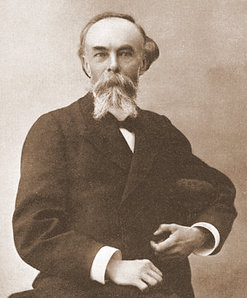Camille Biot
Camille Biot (1878–1962) was a French physician and biologist known for his research in the field of hematology. He is most notably recognized for discovering the Biot's breathing, a type of breathing pattern that is irregular, characterized by varying depths and rates of respiration, followed by periods of apnea. This discovery has had a significant impact on the medical field, particularly in the diagnosis and understanding of various neurological and respiratory conditions.
Early Life and Education[edit | edit source]
Camille Biot was born in 1878 in France. From a young age, he showed a keen interest in the sciences, which led him to pursue a career in medicine. Biot completed his medical studies at a prestigious university in France, where he excelled in his coursework and research.
Career and Research[edit | edit source]
After completing his education, Biot dedicated his career to medical research, with a focus on hematology and respiratory diseases. His work in the laboratory led to the discovery of what is now known as Biot's breathing. This pattern of breathing is characterized by short bursts of rapid respirations followed by regular or irregular periods of apnea. Biot's breathing is often associated with damage to the medulla oblongata or to the respiratory centers of the brain and is considered a sign of critical neurological impairment.
Biot's research extended beyond this discovery. He also contributed to the understanding of various blood disorders and played a role in the early studies of blood transfusion. His work has been cited in numerous medical texts and journals, contributing to the advancement of both theoretical and practical aspects of medicine.
Legacy[edit | edit source]
Camille Biot's contributions to medicine, particularly in the field of hematology and neurology, have left a lasting impact. The identification of Biot's breathing has aided in the diagnostic processes for various neurological and respiratory conditions, improving patient care and outcomes. His dedication to research and discovery exemplifies the importance of scientific inquiry in the advancement of medical knowledge.
Biot's work continues to be studied and referenced by medical professionals and researchers around the world. His legacy is not only in his discoveries but also in his approach to medical research, emphasizing the importance of observation and detailed analysis.
See Also[edit | edit source]
Search WikiMD
Ad.Tired of being Overweight? Try W8MD's physician weight loss program.
Semaglutide (Ozempic / Wegovy and Tirzepatide (Mounjaro / Zepbound) available.
Advertise on WikiMD
|
WikiMD's Wellness Encyclopedia |
| Let Food Be Thy Medicine Medicine Thy Food - Hippocrates |
Translate this page: - East Asian
中文,
日本,
한국어,
South Asian
हिन्दी,
தமிழ்,
తెలుగు,
Urdu,
ಕನ್ನಡ,
Southeast Asian
Indonesian,
Vietnamese,
Thai,
မြန်မာဘာသာ,
বাংলা
European
español,
Deutsch,
français,
Greek,
português do Brasil,
polski,
română,
русский,
Nederlands,
norsk,
svenska,
suomi,
Italian
Middle Eastern & African
عربى,
Turkish,
Persian,
Hebrew,
Afrikaans,
isiZulu,
Kiswahili,
Other
Bulgarian,
Hungarian,
Czech,
Swedish,
മലയാളം,
मराठी,
ਪੰਜਾਬੀ,
ગુજરાતી,
Portuguese,
Ukrainian
Medical Disclaimer: WikiMD is not a substitute for professional medical advice. The information on WikiMD is provided as an information resource only, may be incorrect, outdated or misleading, and is not to be used or relied on for any diagnostic or treatment purposes. Please consult your health care provider before making any healthcare decisions or for guidance about a specific medical condition. WikiMD expressly disclaims responsibility, and shall have no liability, for any damages, loss, injury, or liability whatsoever suffered as a result of your reliance on the information contained in this site. By visiting this site you agree to the foregoing terms and conditions, which may from time to time be changed or supplemented by WikiMD. If you do not agree to the foregoing terms and conditions, you should not enter or use this site. See full disclaimer.
Credits:Most images are courtesy of Wikimedia commons, and templates Wikipedia, licensed under CC BY SA or similar.
Contributors: Prab R. Tumpati, MD

